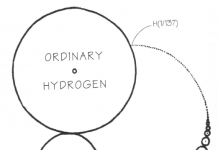Last weekend, TXU Corporation (NYSE: TXU) made the stunning announcement that it would be acquired by two private equity giants Kohlberg Kravis Roberts (KKR) and Texas Pacific Group (TPG) in a transaction valued at $45 billion. Press release Two things leap out at me from the announced deal. First, the investors are willing to pay a 25% premium over the recent share price, while at the same time committing to a 10% rate reduction for TXU’s residential electricity customers in Texas. KKR and TPG are no dummies: it must mean that they truly think they can run TXU much more efficiently than it has been run even though TXU has been widely viewed as a glowing success story since the meltdown of the merchant power markets in 2002. If a “good” utility TXU can be taken over by a private equity group at a premium price and earn the required rates of return on invested capital while cutting prices to customers, pretty much any electric utility should be in the same boat. Conclusion: there must be a lot of fat in the utility industry that can be cut with more aggressive management. If I were a large institutional investor in an underperforming utility, I’d be pressing the executives to dress the company up for sale. If I were a senior manager in the utility sector, I’d be expecting to be pushed to a much higher degree of performance for shareholders. If I were a mid-manager or lower level employee at a utility, I’d become increasingly worried about my job. Second, the investors are the prime movers in axing 8 of 11 announced coal fired powerplants from TXU’s growth ambitions, in lieu of increasing expenditures on customer efficiency by $400 million. This will be a major reversal for John Wilder, TXU’s CEO, who has been loudly touting a vision for massive coal expansion. I’m certain that Wilder’s rich payday from this lucrative deal will help soften the blow to his ego, but it will be interesting to see how Wilder copes under his new owners. These are smart investors, and they seem to be saying that energy efficiency (along with renewables) is a much better investment than new coal fired powerplants especially in a world with likely future carbon restrictions. This deal no doubt sends a signal that the capital markets are increasingly unwilling to make big bets on continued status quo in the utility industry. Wall Street is saying that the utility industry must change, and that it isn’t just going to keep dumping money into utilities that want to perpetuate the 20th Century. Based on initial reports, it appears that there are few hurdles to the deal being closed, but I remain curious as to how KKR and TPG expect to monetize their $45 billion investment. It seems like there are three possibilities: simply holding the company and recouping returns via dividends from improved operations, flipping the company to another owner (or re-taking the company public) at a higher price, or breaking the company apart and selling the pieces to more natural owners. I’m sure they have thought through these possibilities in great detail, though it’s not obvious to me. The examples of private equity attempting to earn attractive returns through investments in the U.S. electric utility sector have, to date, been not very successful. Let’s hope this deal works out for the investors. I’d love to see many more utilities bought by private equity firms and shaken up. I bet that many utility CEO’s and management teams wouldn’t last long under the reins of more aggressive owners. And, I’d bet we’d see better environmental performance from these historically lethargic companies. I hope the TXU deal is the beginning of a trend. Richard T. Stuebi is the BP Fellow for Energy and Environmental Advancement at The Cleveland Foundation, and is also the Founder and President of NextWave Energy, Inc. Richard is a Contributor to Clean Tech Blog where this story was first published.




